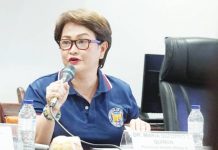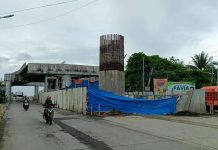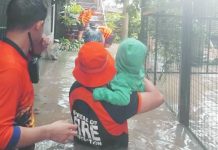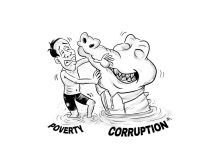
LAST week Sen. Rodante Marcoleta introduced a whistleblower at the Senate Blue Ribbon Committee.
Reading from a notarized affidavit, Orly Guteza accused Ako Bicol’s Rep. Elizaldy Co and former Speaker Martin Romualdez of receiving P1.68 billion in cash contained in several suitcases.
Guteza alleged that 46 suitcases containing P48 million each were delivered to Co. Some of the suitcases were left with Co, but many were later brought to Romualdez in Forbes Park. The deliveries were supposedly made while he was working as Co’s security consultant between December 2024 and August 2025.
***
Lawyer Petchie Rose Espera quickly denied having notarized Guteza’s affidavit.
As reported, Espera said that she did not perform the notarial act even if the affidavit that Guteza submitted to the Senate bore her notarial details and signature.
“The use of my name and notarial commission in connection with the said document is spurious, fraudulent, and injurious to my reputation as a member of the Bar and a commissioned Notary Public,” Espera said in her letter seeking the removal of Guteza’s affidavit from a social media post.
***
Spin-masters are now claiming that defects or irregularities in the notarization merely transformed the affidavit into a private document that was nonetheless affirmed by Guteza when he testified in the Senate.
Assuming that such is the case, does that mean that Guteza is absolved of liability?
As of press time, Guteza has reportedly made himself scarce and has not appeared before the Department of Justice on a possible application for protection as a witness in the ongoing corruption investigation.
***
If what Atty. Espera is saying is true, then Guteza is at least guilty of forging or falsifying her signature – a criminal act under the Revised Penal Code.
The use of a falsified document, i.e., the affidavit bearing Espera’s forged signature, is also a crime under the same code.
The document was used in an official proceeding. The person who presented the falsified document is presumed to be the author of the falsification.
***
Lawyers will find it in precedents that the testimony of the very person whose signature is disputed is more than competent proof on the genuineness of such signature.
In this case, Atty. Espera’s denial of what purports to be her signature is competent evidence of the forgery.
The burden is now on Guteza, who can disprove Espera’s denial by presenting the findings of handwriting experts or possibly the particular page on Espera’s notarial book where the notarized document is entered and numbered.
***
What all this means, however, is that the Senate became the situs of a crime – a falsified document was used in an ongoing investigation.
Is Sen. Marcoleta innocent, or did he know that shortcuts could have been taken in the haste to present a witness?
Thousands of notarized documents are accessible to those who may have come across them in the course of business or employment. Details may be lifted with facility./PN







